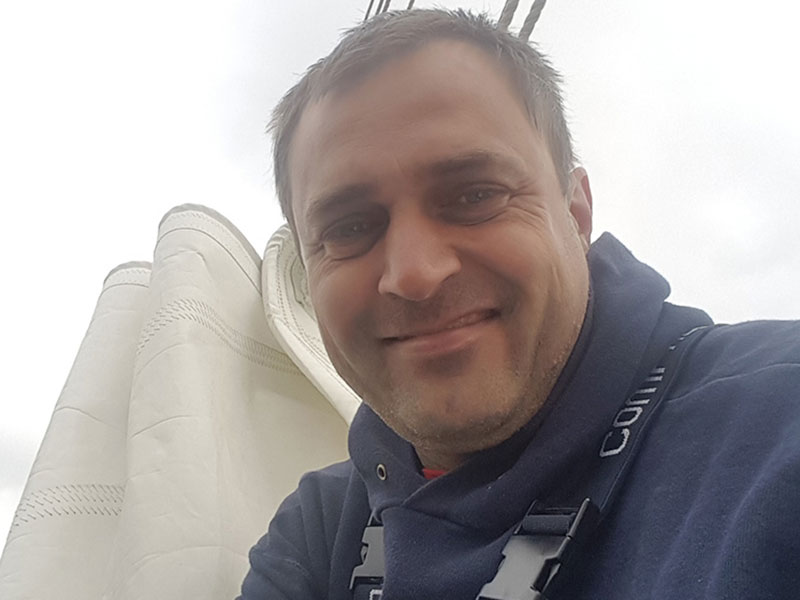
Peter Ansorge
NASA Citizen Scientist
Heinrich Hertz High School, Berlin
Humboldt-Universität zu Berlin, Germany
Peter is a business consultant in Germany.
I've been interested in science and space forever, since I was a child. Later as a young man, I met two cosmonauts – Sigmund Jähn and Waleri Bykowski – personally, and it was fascinating when they spoke about their flight and what they saw. There were too many setbacks in my own health to apply for a space program, but I always wanted to take a part, however small, in the exploration of space. So it was an easy decision to join Zooniverse when I read about the program in a newspaper.
I am a business consultant for human resources payroll systems (Germany has the most complex payroll regulations in the world), and I like the work because there is a lot of interaction with other people and the businesses they're in. My hobbies include glider planing with two historic planes at Stoelln/Rhinow airfield; sailing with traditional sailing ships on the Baltic Sea.
I learned about the complexity of modern research, using scientific sources of knowledge (e.g., star catalogues), and interacting with other people to check scientific results. I am very pleased to have such a lot of interaction with the astronomers at the Backyard Worlds: Planet 9 project, and to see how they work, run projects, and apply for resources as well.
I am a coauthor on the final two Exoplanet Explorers papers, as I’ve contributed more than 10,000 light-curve classifications to the project, including a dozen good exoplanet candidates. Due to limited resources for further research, only a small fraction of the projects’ identified exoplanet candidates could be examined and confirmed by the astronomers.
The papers I was part of were led by Veselin Kostov and Jon Zink, respectively:
- TOI-1338: TESS' First Transiting Circumbinary Planet, published in The Astronomical Journal in 2020
- Catalog of New K2 Exoplanet Candidates from Citizen Scientists, published in Research Notes of the AAS in 2019 (non-peer reviewed)
The internet's not perfect in Germany, but it's OK. You can even work while travelling on trains or at the airports. Looking for elephants in wildlife photos, for instance, is much more interesting to me than looking around in a crowded airport terminal.
Backyard Worlds: Planet 9, because the professionals take great efforts to let the citizen scientists really be part of the whole project. That's awesome. For instance, I was part of a very successful side project created by citizen scientists called the Plane Party last autumn and winter that delivered a bulk of new brown dwarf candidates. And to learn that ground and space telescopes like Keck Observatory and Hubble were directed to check the findings of fellow citizen scientists makes me really proud.
I never thought I could work with professional star catalogues like AllWISE or Gaia DR2 one day, but I did. And you also learn about the hard decisions science projects have to make and the competition for resources that they face.
Just try it, find out what you like, have fun, and ask the professionals to really share with you. There are a lot of interesting projects out there. And if you really like it, you can always dig deeper.
Marc Kuchner is a great scientist, a great project leader, and a fine fellow too.
Some hours a week.
Planetary science is a global profession.

